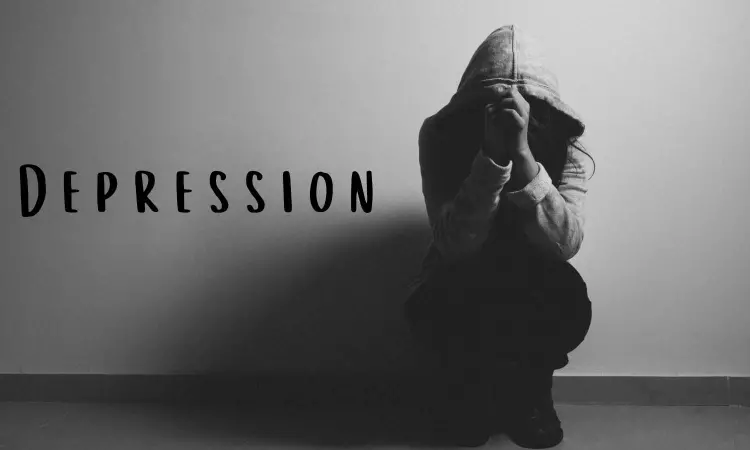- Home
- Medical news & Guidelines
- Anesthesiology
- Cardiology and CTVS
- Critical Care
- Dentistry
- Dermatology
- Diabetes and Endocrinology
- ENT
- Gastroenterology
- Medicine
- Nephrology
- Neurology
- Obstretics-Gynaecology
- Oncology
- Ophthalmology
- Orthopaedics
- Pediatrics-Neonatology
- Psychiatry
- Pulmonology
- Radiology
- Surgery
- Urology
- Laboratory Medicine
- Diet
- Nursing
- Paramedical
- Physiotherapy
- Health news
- Fact Check
- Bone Health Fact Check
- Brain Health Fact Check
- Cancer Related Fact Check
- Child Care Fact Check
- Dental and oral health fact check
- Diabetes and metabolic health fact check
- Diet and Nutrition Fact Check
- Eye and ENT Care Fact Check
- Fitness fact check
- Gut health fact check
- Heart health fact check
- Kidney health fact check
- Medical education fact check
- Men's health fact check
- Respiratory fact check
- Skin and hair care fact check
- Vaccine and Immunization fact check
- Women's health fact check
- AYUSH
- State News
- Andaman and Nicobar Islands
- Andhra Pradesh
- Arunachal Pradesh
- Assam
- Bihar
- Chandigarh
- Chattisgarh
- Dadra and Nagar Haveli
- Daman and Diu
- Delhi
- Goa
- Gujarat
- Haryana
- Himachal Pradesh
- Jammu & Kashmir
- Jharkhand
- Karnataka
- Kerala
- Ladakh
- Lakshadweep
- Madhya Pradesh
- Maharashtra
- Manipur
- Meghalaya
- Mizoram
- Nagaland
- Odisha
- Puducherry
- Punjab
- Rajasthan
- Sikkim
- Tamil Nadu
- Telangana
- Tripura
- Uttar Pradesh
- Uttrakhand
- West Bengal
- Medical Education
- Industry
Phase 2a trial of psychedelic shows promise for major depressive disorder

UK: Patients who received at least one active dose of SPL026 with supportive therapy showed a durable improvement in depression symptoms, according to top-line results from a Phase IIa trial.
The trial showed that an intravenous N, N-Dimethyltryptamine (DMT), SPL026, with supportive therapy for major depressive disorder (MDD), met the primary endpoint. SPL026 demonstrated a statistically significant and clinically relevant reduction in depressive symptoms at two weeks post-dose than placebo. Further study of key secondary endpoints showed a long-lasting and rapid antidepressant effect to 12 weeks.
The trial investigated the safety and efficacy of intravenous SPL026 with supportive therapy among 34 patients with moderate/severe MDD. Dosing of patients was done with a short IV infusion of 21.5mg SPL026, leading to a 20 to the 30-minute psychedelic experience. People who entered the trial on pharmacological antidepressant medication were withdrawn from their treatment before dosing.
The two-staged Phase IIa study included a randomized, blinded, placebo-controlled phase. The primary endpoint was to examine the efficacy of an SPL026's single dose with supportive therapy (N=17) compared to a placebo with therapy (N=17) at two weeks post-dose. All study participants were subsequently enrolled on an open-label phase where they received an SPL026 single dose with supportive treatment and were followed for further 12 weeks in the study.
MADRS (Montgomery-Asberg Depression Rating scale) was used to assess the efficacy of measuring any potential change in depression from baseline. MADRS assessment was done by independent raters who were absent at dosing and were blinded to the overall treatment.
The study revealed the following findings:
· The study met the primary endpoint revealing a statistically significant and clinically relevant reduction in depressive symptoms two weeks following a dose of SPL026 with supportive therapy versus placebo, demonstrating a -7.4 point difference in MADRS.
· Analysis of key secondary endpoints showed a rapid onset of antidepressant effect one-week post-dose, with a statistically significant difference in MADRS score of -10.8 between the active and placebo groups.
· Patients who received at least one active SPL026 dose with supportive therapy showed a durable improvement in depression symptoms across the 12-week open-label phase.
· The authors did not observe any apparent difference in antidepressant effect between a one and two-dose regimen of SPL026.
· At 12 weeks, the total mean reduction in MADRS was –15.4 from baseline after a single dose of SPL026.
The detailed findings of the trial are expected to be presented at upcoming scientific meetings and featured in a peer-reviewed journal.
Dr Kamal Kant Kohli-MBBS, DTCD- a chest specialist with more than 30 years of practice and a flair for writing clinical articles, Dr Kamal Kant Kohli joined Medical Dialogues as a Chief Editor of Medical News. Besides writing articles, as an editor, he proofreads and verifies all the medical content published on Medical Dialogues including those coming from journals, studies,medical conferences,guidelines etc. Email: drkohli@medicaldialogues.in. Contact no. 011-43720751
Next Story


